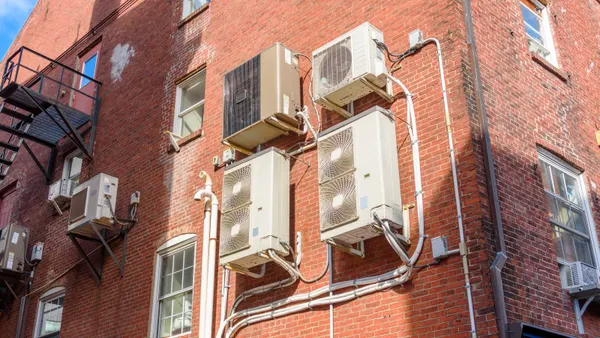Dive Brief:
- Debate on the first broad energy legislation considered by the full Senate since 2007 will stretch into the weekend, The Hill reports, due to an impasse over an amendment to assist residents of Flint, Michigan, who are dealing with a high-profile water crisis.
- Michigan Sens. Debbie Stabenow and Gary Peters, both Democrats, introduced an amendment this week that would commit $600 million for Flint, including $400 million to match state funds intended to repair and replace old water pipes in the city.
- Flint, under the oversight of a state-appointed emergency manager, halted drinking water purchases from Detroit in 2014 and began drawing drinking water from the Flint River as a cost-cutting measure. The river water corroded the city's water pipes, allowing lead and other contaminants to seep into the water supply.
Dive Insight:
Senators voted twice on Thursday to end debate on the energy bill, the New York Times reports, which would have allowed a final vote on the measure. But each time, Democrats blocked the measure from reaching the 60-vote threshold necessary to close debate, saying they would not move forward without funding for Flint.
“I ask my colleagues in the Senate to look very hard at what has happened here and to help us address this issue,” said Sen. Stabenow, who has led the charge for federal assistance for the water crisis along with Sen. Peters.
An alternative proposal offered by Republicans to provide $500 million in low-interest loans and $50 million in outright funding for Flint was labeled "not adequate" by Stabenow. Officials in Flint expect that it could cost more than $700 million to repair water infrastructure in the city, according to the Detroit Free Press.
Republican Majority Whip John Cornyn (R-TX) called the Democrats' move to oppose the legislation "political gamesmanship" and argued that the Flint proposal was "putting the cart before the horse" because local officials "don't know what they need to do to fix the problem or how much it will cost," Freep reports.
Lawmakers considered dozens of amendements to the bipartisan energy legislation this week, but turned aside the most contentious ones as they attempted to pass a bill with broad bipartisan support that President Obama would sign.
Senate Majority Leader Mitch McConnell used a procedural tactic, the Hill reports, that will allow him to bring the bill up again if an agreement is reached.
"Hopefully we'll be able to salvage this important bipartisan legislation in the next few days," he said.













